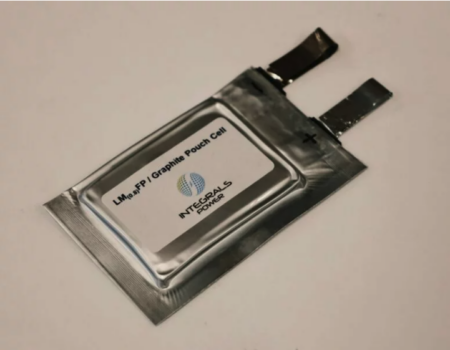UKRI today announced a further investment of £10m from the Faraday Battery Challenge to support collaborative R&D projects co-funded by industry and managed by Innovate UK on behalf of UK Research and Innovation (UKRI). At least four of the projects chosen in what was a highly competitive bidding process leverage the knowledge, capabilities and know-how developed by the Faraday Institution research community.
Professor Pam Thomas, CEO of the Faraday Institution commented, “This development demonstrates the rapid success of our organization in identifying and pursing battery research that offers the most potential to deliver commercial impact for the UK. Together the 17 projects announced by Innovate UK today will help create a thriving and profitable UK battery development and manufacturing industry.”
“This new round of funding enables us to support companies across the battery supply chain and build on the UK’s world class research and innovation,” commented Tony Harper, Challenge Director for Faraday Battery Challenge at UK Research and Innovation. “One project, Power-UP, combines industry partners with input from the UK Battery Industrialisation Centre and the Faraday Institution to deliver a product that has the potential of being a best-in-class cell with unique selling points.”
The projects include:
Two separate projects build on the success of researchers at Imperial College London working on the Faraday Institution’s Multi-scale Modelling project and its subsequent Industry Sprint TOPBAT. The team has previously demonstrated significant opportunities for improvements in energy density at pack level, lifetime and cost optimizing cell design for thermal management rather than exclusively for cell-level energy density, as is current industry practice.
The Power-Up project will establish the feasibility of manufacturing AMTE Power’s Ultra High Power cells in the UK, at volume. The aim is to have an automotive format cell ready for production at UKBIC by the end of the 12-month project. AMTE will engage with potential UK customers for these cells, providing them early mover advantage. The project aligns with UKBIC’s ambition to develop the capacity for high power pouch cell manufacturing for its customer base.
GENESIS (Generating Energetic Novel cells and Systems Inspired by Software) is a collaboration led by Gigaplant developer Britishvolt that aims to design and demonstrate a large format lithium-ion pouch cell. It will be optimized to deliver both high energy density and sustain fast charging to the automotive sector technical requirements and use-case specifications, provided by an automaker. The consortium will integrate both high energy cathode materials and novel separator technology from project partners Johnson Matthey and ENTEK Membranes. Prototype cells will be fabricated to refine and validate the modeling undertaken at Imperial.
HIPERCARB (High performance hard carbon composites for Na-ion) builds on an existing relationship between the NEXGENNA project and one of its industry partners Deregallera and preliminary data generated by a Faraday Institution cohort PhD researcher at Lancaster University. HIPERCARB will screen composites based on hard carbons manufactured by Deregallera for use as possible anodes for sodium-ion batteries, optimizing them to reduce cost and targeting an improvement in cell level energy density of >200Wh/kg, a step beyond current state-of-the-art. The project will be informed by techno-economic assessments carried out by CPI and the final output will be the manufacture and testing of a pouch cell using the most promising anode material.
SABRE (Silicon Anode Battery for Rapid Electrification), led by Nexeon, is aiming to deliver an advanced lithium-ion cell design incorporating a novel silicon anode that has the potential to increase the range of electric vehicles. Nexeon’s silicon material with high lithium capacity and low volume change on cycling is being used as a basis. Britishvolt will apply innovative computer-aided cell design and simulation to accelerate the integration of silicon into the anode design. Analysis will be carried out using X-ray computed tomography developed at UCL’s Electrochemical Innovation Lab and refined as part of the Faraday Institution’s project on battery degradation. The project will utilize the new cell assembly capabilities at UKBIC for the fabrication of cells to test and validate the new cell design.
The Faraday Battery Challenge brings together world-leading research, business innovation and scale up of manufacturing to accelerate to develop the latest battery technologies – a crucial part of the UK’s move towards a net zero emissions economy.





